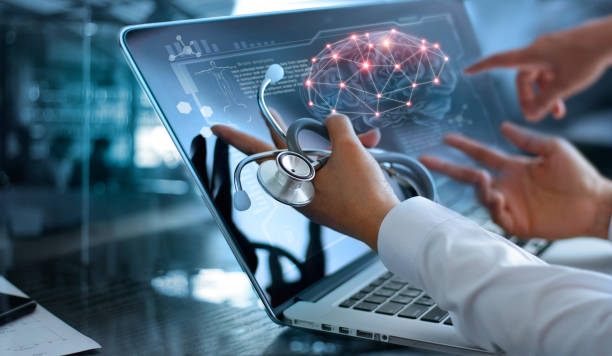Why Do We Need To Have Information and Communication Technology In Healthcare? | |
|
Information and Communication Technology participates in a crucial duty in changing and enhancing health care systems worldwide. The integration of Zorg ICT has carried approximately considerable improvements in individual care, efficiency, accessibility, and overall health care management. Numerous Key Factors Emphasize The Relevance Of Information and Communication Technology In The Health Care Field:Dependable Data ManagementICT helps with the seamless management of substantial volumes of medical care data, consisting of client reports, case histories, diagnostic reports, and treatment plans. Electronic Health Records (EHRs) enable healthcare experts to gain access to, update, and reveal individual information safely and securely, ensuring better-informed decision-making and coordinated care. Improved Communication and CollaborationICT tools like safe and secure messaging systems, video conferencing, and joint software allow medical care professionals to connect effectively, regardless of topographical distances. This is especially essential for distant examinations, multidisciplinary care staffs, and the control of solutions amongst various doctor. Telemedicine and Remote MonitoringThe combination of ICT has actually assisted in the growth of telemedicine, enabling people to talk to health care professionals from another location. This is actually especially advantageous for individuals in country or even underserved locations. Remote monitoring technologies make it possible for real-time tracking of vital signs and health specifications, permitting prompt intervention and lowering the necessity for frequent health center brows through. Improved Diagnostics and Treatment PlanningAdvanced imaging modern technologies, analysis tools, and records analytics powered by ICT have actually reinvented the method of health condition medical diagnosis and treatment organizing. Computer-aided diagnostics, synthetic knowledge protocols, and anticipating analytics bring about even more precise and timely diagnoses, bring about better treatment results. Client Empowerment and EngagementICT encourages clients through giving accessibility to health and wellness information, academic resources, and individualized health and wellness management tools. Client sites, mobile phone apps, and wearable devices motivate energetic involvement in one's health care trip, encouraging a sense of duty and advertising much healthier way of lives. Improved Patient SafetyICT assists in decreasing health care errors and improving client security by means of procedures like electronic doctor order entry (CPOE) systems and barcode medication management. These modern technologies reduce the danger of treatment mistakes, ensure correct does, and enrich overall patient protection within healthcare settings. Efficient Administrative Processes
Administrative activities within healthcare organizations, like visit organizing, payment, and inventory management, perk from the implementation of Cura ICT. Automation of these processes certainly not simply reduces documents yet additionally enriches total functional effectiveness, allowing health care providers to concentrate even more on patient care. Research study and InnovationICT accelerates medical investigation by promoting the compilation, evaluation, and sharing of data on a worldwide scale. Significant records analytics and joint systems permit analysts to identify patterns, styles, and prospective breakthroughs. This cultivates a society of continual advancement and results in the development of brand new treatments and treatments. Medical Care Accessibility and EquityICT can aid link the health care gap through raising accessibility to medical companies in underserved or small areas. Telehealth solutions, mobile phone health and wellness facilities, and community-based programs take advantage of technology to carry health care companies deeper to those who could typically deal with obstacles in accessing them. To conclude, the assimilation of ICT in healthcare is vital for generating a more reliable, obtainable, and patient-centered health care system. It not just improves the quality of care however likewise results in cost-effectiveness, research innovations, and the total wellness of people and communities. As technology proceeds to evolve, the part of ICT in healthcare is counted on to increase, additionally changing the means medical care services are supplied and experienced. | |
 |
